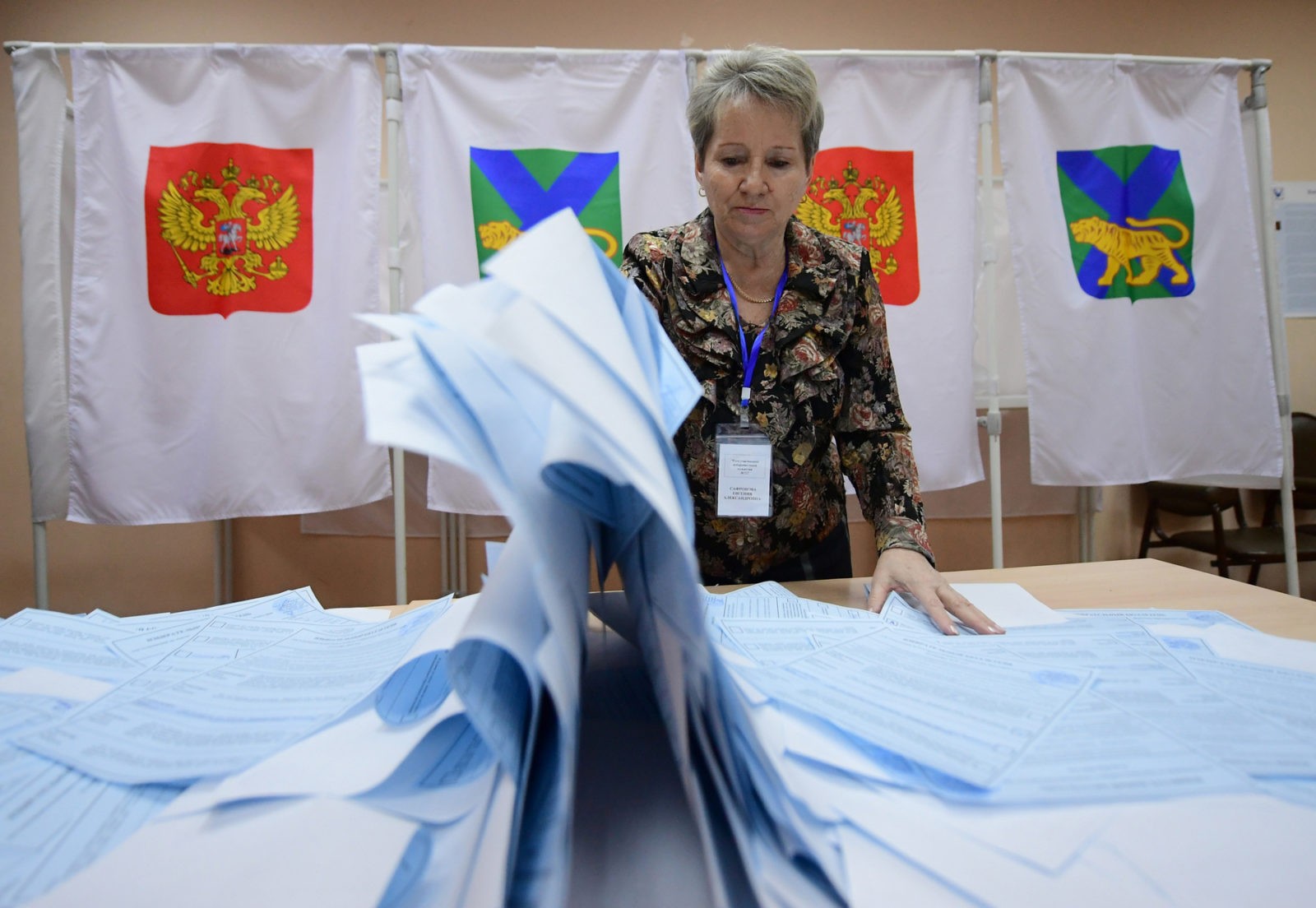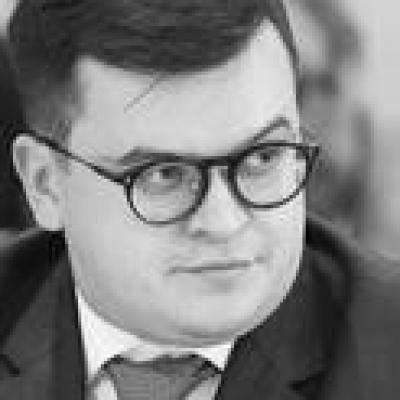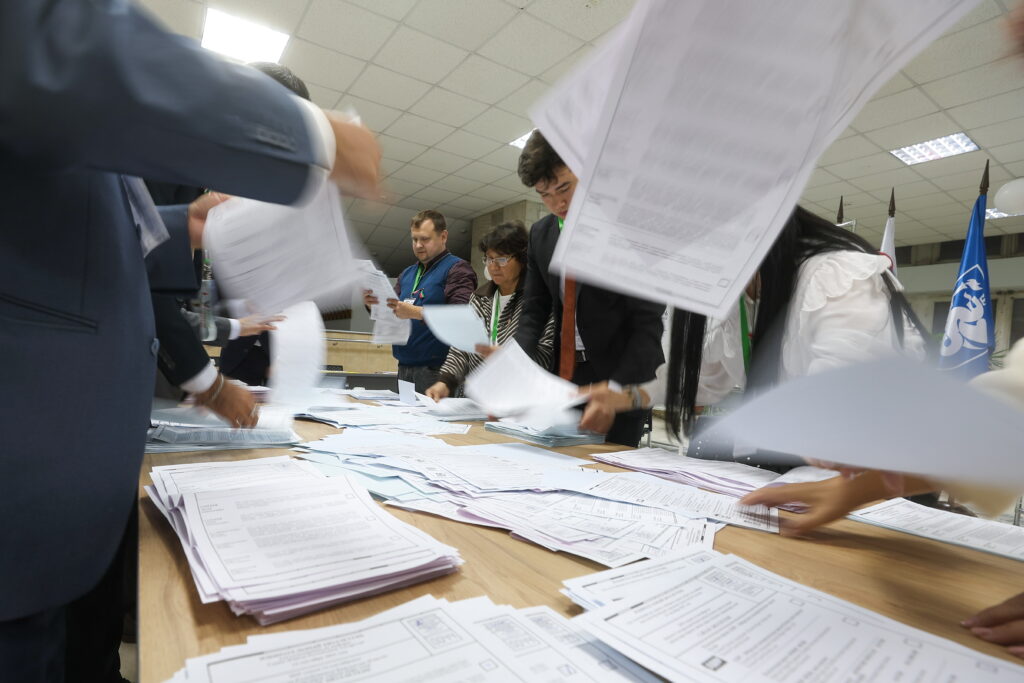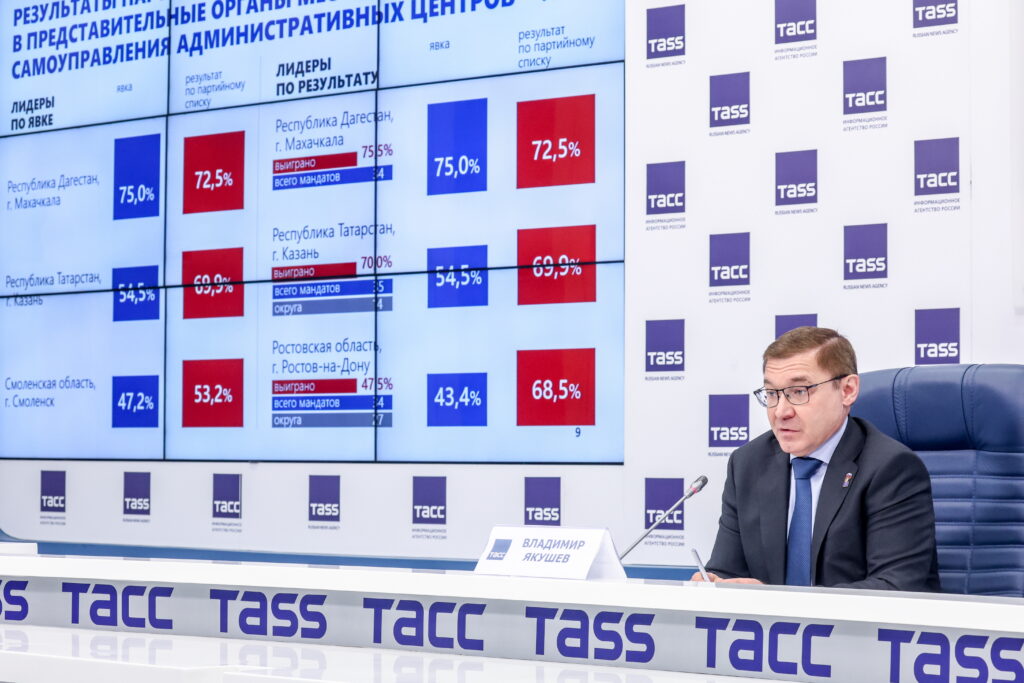During a working group on amending electoral law held on 19 February, Olga Batalina, first deputy secretary of United Russia’s general council, announced that the country’s ruling party had agreed to lower the upper limit of the so-called “municipal filter” in time for forthcoming gubernatorial elections.
The municipal filter is familiar to anybody who closely follows elections in Russia. The system operates during elections for heads of regions and is used to screen potential candidates. Supporters of the municipal filter, which was introduced simultaneously with the restoration of direct elections for regional governors in 2012, gave several reasons for its introduction. Similarly, the formal initiator of the bill Dmitry Medvedev, also named a number of functions that the municipal filter was supposed to perform. The filter obliges anybody running for local office to collect signatures from municipal deputies and the heads of municipalities in their support. Medvedev argued that this would not only ensure political support for successful candidates, but also protect residents of the regions from rule by those who are “completely unprepared, or just swindlers, village idiots, or town fools.” Furthermore, he continued, the system was designed to weed out candidates who are far removed from the region where they plan to contest an election. Other speakers added that the “filter” would help develop the party system and strengthen local government.
None of these high hopes or formally stated functions for the municipal filter have ever been realised in practice. Several governors who passed the municipal filter are quite clearly “swindlers,” judging by the corruption cases have been brought against them. Furthermore, it’s easy to lose count of how many governors have had to resign before the official end of their term in office due to the federal authorities’ dissatisfaction with their performance. According to Golos, an NGO defending voters’ rights in Russia, the system has the counterproductive habit of actually preventing reputable and strong candidates from reaching office, in favour of the “unprepared,” “criminal elements,” and “swindlers” it is meant to discourage. The most striking example last year was that of Andrey Ishchenko, who in September won a quarter of a million votes in Primorsky Krai. In all likelihood Ishchenko would have won the delayed gubernatorial elections, had he not been barred from running in them precisely because he could not pass the municipal filter.
However, the municipal filter has been overcome all too often by candidates who do not enjoy real support from voters. So it was in 2018, when gubernatorial elections were held simultaneously in 22 regions; of the 80 losing candidates, over a third received less than 5% of the vote, 13 whom won less than 3%. For example, in the Magadan region, the candidate from the Civic Platform party, Alexander Martyniuk, scored only 631 votes (1.63%), although he had previously successfully overcome the “municipal filter”, unlike the representative of Just Russia. This ridiculously low result showed how insignificant voter support Martynyuk enjoyed in reality. It can be assumed that the signatures of municipal deputies in his support were collected by the executive branch itself.
Candidates “far removed from their region” have started to win regional elections with enviable frequency. In the elections of 2018, out of the 17 acting governors who planned to get rid of that prefix on September 9, only seven can really be considered natives of the regions they rule. These are Dmitry Azarov (Samara Oblast), Alexander Moor (Tyumen Oblast), Vasily Orlov (Amur Krai), Dmitry Artyukhov (Yamalo-Nenets Autonomous Okrug,) Alexander Gusev (Voronezh Oblast), Aysen Nikolayev (Sakha Republic) and Alexander Uss (Krasnoyarsk Krai). The rest turned out to be functionaries from anywhere, placed wherever the federal authorities decreed. The success of these outsiders does not only attest to a deliberate policy from the federal centre, but also to their willingness to blithely ignore one of the stated reasons for introducing the “municipal filter” in the first place.
There were other high hopes, too. Government experts declared that the introduction of the municipal filter would help stimulate party political activities on the local level, thereby raising the status of local deputies. Yet this did not happen. A closer look at participation rates of political parties in smaller-scale votes (that is, local elections held between national election days), it turns out that only United Russia and the Liberal Democratic Party of Russia (LDPR) regularly take part, while the role of the latter is to run “Potemkin candidates” who do not even pretend to hope of winning. The Communist Party of the Russian Federation (KPRF) only participates in one of every six elections held in the country, and A Just Russia does so even less frequently. Thus the municipal filter clearly does not perform any of its publicly stated tasks, but has coped admirably with its real one: allowing the authorities to destroy any real competition which dares to run in election. Until recently, there had been only one instance of a gubernatorial election making it to a second round of voting: the surprise victory of KPRF candidate Sergey Levchenko in the Irkutsk Oblast in 2015.
The first cracks in the system began to appear last year, when yesterday’s “Potemkin candidates” won in elections in Vladimir Oblast, Khabarovsk Krai, and the Republic of Khakassia. In Primorsky Krai, the elections were even cancelled outright due to mass fraud.
After such a rude awakening one would expect some kind of reaction from the authorities leading to systemic change, but the proposals made so far do not appear to change anything.
The municipal filter comprises three layers; that is, three separate requirements for collecting signatures from municipal deputies and the heads of municipalities. If a candidate fails to fulfil at least one of these three requirements, he or she will not be registered to contest the election.
The first hurdle is to collect enough signatures from local deputies and directly elected heads of municipalities. This is generally in the region of 5% to 10%, though regional legislators determine the exact number required. The second hurdle is to collect signatures from 5% to 10% of municipal deputies in so-called top level municipalities (urban and municipal districts). The third hurdle is that all of the signatures be collected in three quarters of all municipalities in the region.
Now United Russia proposes to reduce the percentage of signatures for the first requirement (i.e. those of local deputies and directly elected municipal heads) to 5%, and the second (urban and municipal districts deputies) to 7%. The third requirement, which is the most difficult for candidates to meet, is unchanged by the party’s proposals.
Unfortunately, these new changes will have virtually no effect on Russia’s next round of gubernatorial elections in September. After all, had these amendments to the electoral law been adopted a year ago, the gubernatorial elections of 2018 would have to have been held under these new rules. In eight of the 22 regions which elected a new governor, the municipal filter did not exceed 5%, and in 12 regions the number of “top level” signatures that candidates for governor had to submit to electoral commissions for registration would not have changed.
Nevertheless, even if United Russia’s proposed amendments to the electoral law are adopted, it seems unlikely that they will change the outcome in regions which hold gubernatorial elections in September. Neither would they have changed much if the elections of 2018 had been held under the new rules; an analysis by Golos suggests that there would only have been a significant change in three of the 22 regions (namely the Republic of Khakassia, Oryol Oblast, and Magadan Oblast.) In these three regions, had the amendments been passed, candidates from the KPRF could have overcome the municipal filter without the assistance of other parties or independent candidates. But even the outcome of this hypothetical scenario is far from obvious; we still have to consider the KPRF’s level of representation in various areas of the province. That is to say, even taking into account such a reduction in the municipal filter, it would be far from certain than the KPRF would have been able to independently collect the required number of signatures.
Whatever the results of loosening the constraints of the municipal filter, it is important to bear in mind that the majority of election campaigns bear no hallmarks of real competition. The appearance of pluralism is undermined by the collusion of all political actors. Indeed, in all three regions mentioned above KPRF candidates were still registered and able to compete in elections, thanks to signatures provided by representatives of other parties and independent deputies (mostly, of course, by United Russia.) In fact, the Oryol Oblast was handed to the KPRF by the authorities; United Russia did not even put forward a candidate to run against Andrey Klychkov, while in Khakassia and the Magadan Oblast nobody expected the KPRF to provide real opposition. And that’s exactly why the results in Khakassia came as a surprise.
In contrast, in those regions where the KPRF was seen as strong and able to put up a proper fight, the government did everything to ensure that the largest official opposition party in the country did not nominate anybody. For example, the communists did not nominate the mayor of the regional capital Anatoly Lokot as a candidate for governor of the Novosibirsk Oblast, despite the facts that the party held the necessary number of municipalities in the region (to allow him to overcome the municipal filter — ed.) and that Lokot stood an excellent chance of winning.
By our count, local administrations have directly interfered in the process of selecting candidates for elections in Altai Krai (refusal to nominate a candidate from the KPRF), Krasnoyarsk Krai (refusal to nominate a candidate from the KPRF), Amur Oblast (refusal to nominate a candidate from the LDPR), Novosibirsk Oblast (refusal to nominate a candidate from the KPRF), Omsk Oblast (refusal to nominate a candidate from the KPRF, United Russia, and A Just Russia), Oryol Oblast (refusal to nominate a candidate from United Russia), Pskov Oblast (pressure on the candidate from the Yabloko party), Samara Oblast (replacement of the candidate from the KPRF.)
Therefore, even if the decision to relax the municipal filter had taken place a year ago, it would have had little to no effect on the level of competition in the gubernatorial elections of September 2018.
Nothing less than the complete abolition of the municipal filter is required in order for real competition to make itself felt in gubernatorial elections. But in reality, even that would not be enough. Increasing the independence of political players depends not so much on the politicians (who always act more or less within the boundaries of the politically possible), but rather on the voters themselves, who can widen the constraints of what is considered politically possible at any given time. On the one hand, they can support their preferred candidates with votes and rubles; on the other, they can forcefully demand accountability from their elected representatives. Yet for the moment, this seems unlikely; Russian citizens appear unready either to stand up and demand accountability or to offer real support to a political alternative.










